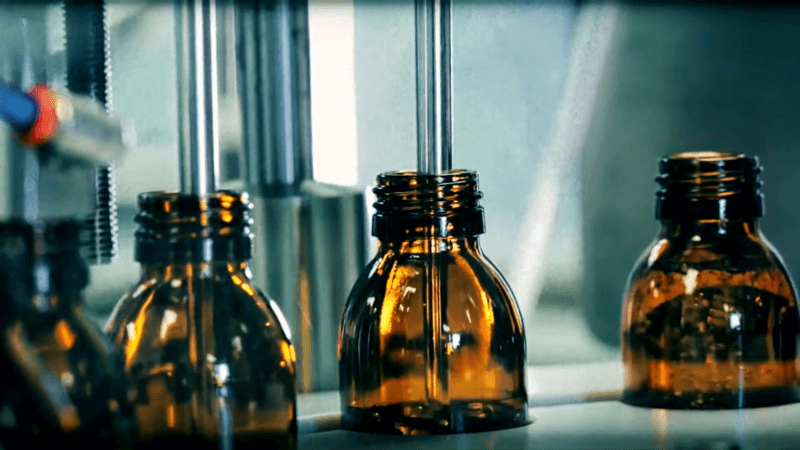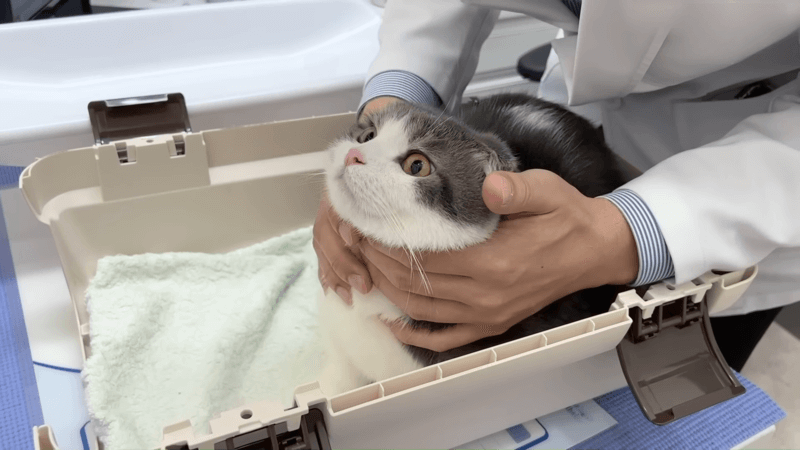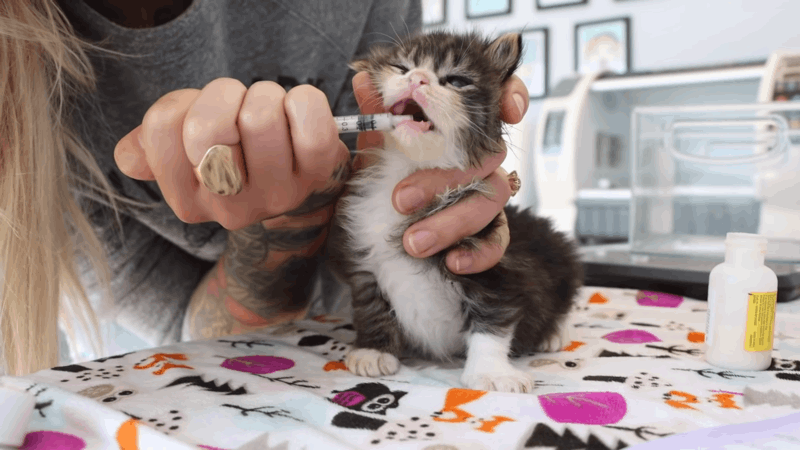No products in the cart.
The most often asked question among pet parents around the world when it comes to CBD oil “Is CBD oil good for a cat with renal disease?”. CBD oil has skyrocketed in popularity due to its potential health benefits, captivating the attention of pet owners seeking natural solutions. But when it comes to our beloved cats facing kidney issues, there’s a lot to consider.
In this blog, we will answer the question, are gizzards good for cats with renal disease? and find out if cat foods for cats with renal disease work for cats or not.
Is CBD Oil Good for a Cat With Renal Disease?
CBD (cannabidiol) oil has gained popularity for its potential therapeutic effects in humans and some animals. However, its use for pets, including cats, is a topic of ongoing research and discussion, especially in cases of renal (kidney) disease.
Cats with renal disease often require specialized care and medical management. Kidney disease can affect various aspects of a cat’s health, including appetite, pain perception, and overall well-being. Some potential considerations regarding CBD oil and cats with renal disease include:
- Consultation: Before giving any CBD product to your cat, consult with a veterinarian who is familiar with your cat’s medical history and current condition. They can provide personalized advice based on your cat’s specific needs.
- Kidney Function: Kidneys play a crucial role in metabolizing substances, and impaired kidney function could potentially impact how the cat’s body processes substances like CBD. This is an important aspect to discuss with your veterinarian.
- Interaction with Medications: Cats with renal disease are often on medications to manage their condition. There could be potential interactions between CBD and these medications. Your vet can advise on any potential risks or benefits.
- Quality and Dosage: If your veterinarian approves the use of CBD, it’s important to choose a high-quality product specifically formulated for pets. Dosage is also crucial, as cats can be more sensitive to substances than humans.
- Symptom Management: CBD is sometimes used to manage pain, anxiety, and appetite issues. Cats with renal disease might experience some of these symptoms, but the effectiveness of CBD in these cases isn’t well-established.
- Research Limitations: As of my last knowledge update in September 2021, there’s limited scientific research on the use of CBD in cats with renal disease. Therefore, the safety and efficacy of CBD in this context are not definitively known.

The Potential Benefits of CBD for Cats with Renal Disease
- Pain and Discomfort: CBD oil cat is believed to have pain-relieving and anti-inflammatory properties, which might help cats with renal disease manage discomfort associated with the condition.
- Appetite Stimulation: Renal disease can lead to appetite loss in cats. CBD might help stimulate appetite and encourage eating, aiding in maintaining proper nutrition.
- Stress and Anxiety: Cats with renal disease may experience stress or anxiety due to their condition. CBD has potential calming effects that could help reduce stress levels and improve the overall well-being of the cat.
- Nausea and Vomiting: Cats with renal disease might suffer from nausea or vomiting. CBD’s anti-nausea properties could provide relief and prevent these symptoms.
The Interaction Between CBD and Renal Function
It’s important to note that there isn’t extensive research specifically on the interaction between CBD and renal function in cats. The endocannabinoid system, which interacts with CBD, is also present in cats, including in the kidneys. However, the impact of CBD on kidney function in cats with renal disease is not well-documented.
For cats with renal disease, it’s crucial to prioritize their kidney health and consult a veterinarian before introducing CBD oil into their routine. The kidneys play a vital role in metabolizing substances, including medications and compounds like CBD. Impaired kidney function might affect how CBD is processed by the body.
Safety Concerns When Using CBD to Treat the Disease
- Drug Interactions: Cats with renal disease may already be on other medications. CBD can interact with certain drugs, affecting their effectiveness or metabolism. Consult your veterinarian to ensure that CBD won’t interact negatively with other treatments.
- Dosage Precision: Determining the appropriate CBD dosage for a cat with renal disease can be complex. Dosage recommendations are not standardized, and giving too much CBD could potentially worsen existing health issues.
- Product Quality: Not all CBD products are equal in quality and safety. Opt for high-quality, third-party-tested CBD products specifically designed for pets. Avoid products with additives or contaminants that might harm your cat.
- Individual Variation: Cats can react differently to CBD. Some may experience positive effects, while others might exhibit adverse reactions. Monitoring your cat’s response closely is crucial.
- Consult a Veterinarian: Before introducing CBD to your cat’s regimen for renal disease, consult a veterinarian with knowledge of CBD usage and feline health. They can guide you on the right product, dosage, and potential risks tailored to your cat’s unique circumstances.
Cat Foods for Cats With Renal Disease
Cat foods specifically formulated for cats with renal disease can indeed be effective in managing the condition and improving the overall well-being of affected felines. Renal disease, or kidney disease, is a common health issue in cats, particularly as they age. These specialized cat foods are designed to address the unique nutritional needs of cats with compromised kidney function.

The Role of Nutrition in Managing Renal Disease
Nutrition plays a significant role in managing renal disease in cats. A proper diet can help alleviate symptoms, slow the progression of the disease, and improve the cat’s quality of life. Key considerations in cat food for renal disease include:
- Low Protein Content: Cats with renal disease often have difficulty processing excess protein. Specialized renal diets typically contain controlled, high-quality protein to reduce the workload on the kidneys.
- Restricted Phosphorus: High phosphorus levels can worsen renal disease. Renal-friendly diets have a lower phosphorus content to support kidney function.
- Increased Omega-3 Fatty Acids: Omega-3 fatty acids have anti-inflammatory properties that can benefit cats with renal disease. They may help reduce inflammation and support overall kidney health.
- Added Vitamins and Minerals: Cats with renal disease can have imbalances in certain vitamins and minerals. Renal diets are formulated to provide these nutrients in appropriate ratios.
- Hydration: Cats with renal disease are prone to dehydration. Wet or canned foods have a higher moisture content, promoting hydration and aiding kidney function.
Dietary Requirements for Kitties
When choosing cat food for cats with renal disease, consider the following dietary requirements:
- Protein Source: Opt for high-quality, easily digestible protein sources such as lean meats or fish. Look for diets that provide the right balance of protein to support muscle maintenance without overloading the kidneys.
- Phosphorus Control: Choose foods with controlled phosphorus levels. Excessive phosphorus can strain the kidneys, so it’s important to feed a diet that supports kidney function.
- Nutrient Balance: Look for foods formulated with balanced amounts of vitamins and minerals, including potassium and omega-3 fatty acids, to support overall health.
- Hydration: Wet or canned foods have higher water content, which can help with hydration. Adequate hydration is crucial for cats with renal disease.
- Prescription Diets: Consult your veterinarian about prescription renal diets designed specifically for cats with kidney disease. These diets are formulated to address the specific needs of cats with renal issues.
- Consult a Veterinarian: Every cat’s condition is unique, so it’s important to consult a veterinarian experienced in feline health and renal disease management. They can provide personalized dietary recommendations based on your cat’s health status.
Are Gizzards Good for Cats With Renal Disease?
Gizzards are a type of organ meat commonly found in the digestive tract of birds. While gizzards can be a source of protein and nutrients, their suitability for cats with renal disease requires careful consideration.

Pros and Cons of Feeding Gizzards to Cats
Pros:
- Nutrient Density: Gizzards contain essential nutrients such as protein, vitamins, and minerals that are important for a cat’s overall health.
- Natural Source of Taurine: Taurine is an amino acid crucial for a cat’s heart and eye health. Gizzards naturally contain taurine.
- Variety in Diet: Offering a variety of protein sources can add diversity to a cat’s diet, which some cats enjoy.
Cons:
- Phosphorus Content: Gizzards can have relatively high phosphorus levels, which can be problematic for cats with renal disease. High phosphorus intake can further strain compromised kidneys.
- Protein Amount: While protein is essential, excess protein intake can be challenging for cats with renal disease. Gizzards may contribute to higher protein intake than desired.
- Cooking and Preparation: Gizzards need to be thoroughly cooked to eliminate any potential bacteria or parasites. Preparing them safely can be time-consuming.
Alternative Protein Sources Suitable for Cats
- Lean Meats: Skinless, boneless chicken or turkey breast can provide high-quality protein without excessive phosphorus content.
- Fish: Low-mercury fish like cod, haddock, or flounder can be a good protein source. However, monitor phosphorus levels in fish.
- Eggs: Cooked eggs, including egg whites, can be a source of protein. Egg yolks should be given in moderation due to their phosphorus content.
- Dairy Products: Small amounts of low-fat cottage cheese or plain yogurt can be offered occasionally for protein variety.
- Commercial Renal Diets: Consult your veterinarian about prescription renal diets formulated to meet the nutritional needs of cats with renal disease.
Conclusion
Is CBD oil good for a cat with renal disease? This question looms as a focal point for pet owners seeking effective ways to support their feline companions facing real challenges. As cats contend with the complexities of renal disease, the potential role of CBD oil as a supplementary option garners attention, necessitating a comprehensive exploration of its benefits, interactions, and safety considerations in the context of renal health.
I am Nelson Cooper, I pursue my passion for writing and my belief is that cats love humans. I enjoy traveling and have a deep appreciation for the beauty of nature, as well as a soft spot for animals, particularly cats.



